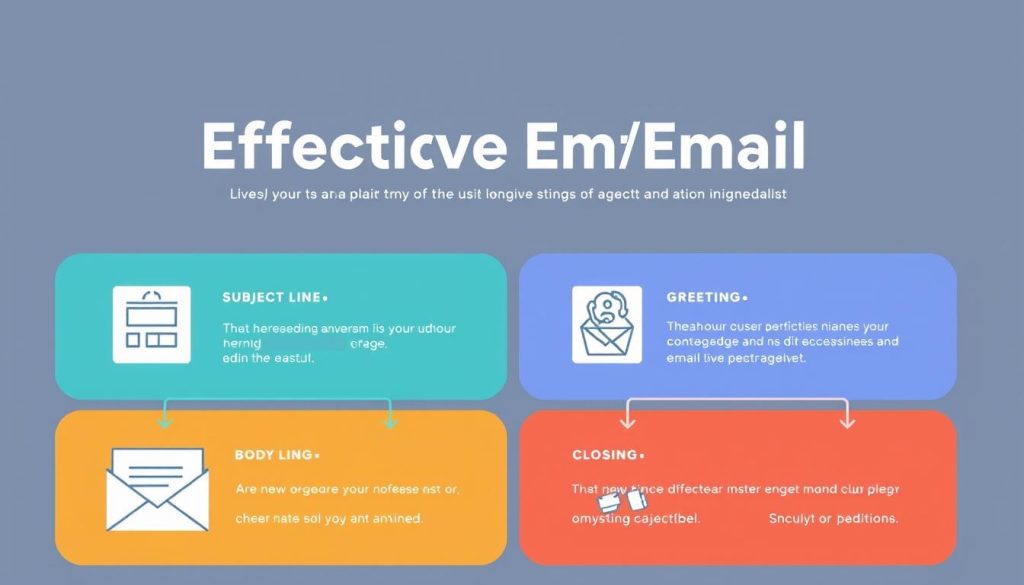In today’s fast-paced startup world, catching the eye of angel investors can make or break your business dreams. Crafting the perfect cold email is an art that can open doors to funding opportunities. With angel investor connection email ideas, you can stand out in a crowded inbox and spark interest in your venture.
Emerging markets investment growth email strategies are crucial for entrepreneurs tapping into new territories. These emails serve as your first impression, condensing your passion and potential into a few compelling sentences. The right approach can transform a simple message into a golden ticket for your startup’s future.
Remember, angel investors receive countless pitches daily. Your email needs to be clear, concise, and captivating. It’s not just about asking for money; it’s about showcasing your vision and demonstrating why your startup is the next big thing they shouldn’t miss.
Key Takeaways
- Personalize each email to the specific angel investor
- Keep your message concise and to the point
- Highlight unique value propositions of your startup
- Include clear call-to-action for next steps
- Follow up thoughtfully without being pushy
- Research investor interests before reaching out
Understanding the Angel Investor Landscape in 2024
The angel investor scene in 2024 is changing fast. New trends are shaping how investors look at opportunities. Now, many angel investors spread their risk by investing in different markets and sectors.
Current Investment Trends and Preferences
Angel investors are now interested in frontier markets. They see the chance for big returns in emerging economies. This move shows investors are ready to take on more risk.
Managing risk is still key. Investors use smart strategies to balance the chance of big gains with the ups and downs of the market.
Different Types of Angel Investors
The world of angel investors is varied. It includes:
- Tech-savvy entrepreneurs turned investors
- Industry veterans with deep sector knowledge
- Family offices seeking alternative investments
- Impact investors focused on social and environmental returns
Investment Criteria and Decision-Making Process
In 2024, angel investors value scalable business models and strong teams. They look for startups that can grow and make money. The process involves checking the market, competition, and how well the startup can handle regulatory issues in new markets.
“The key to successful angel investing in 2024 is finding the right balance between innovation and risk management,” says a prominent Silicon Valley investor.
As the scene keeps changing, angel investors are adjusting their ways. They aim to grab new chances while being careful with risk.
Angel Investor Connection Email Ideas
Creating the right email to reach out to angel investors is key. It needs to grab their attention and show your business’s growth potential. This is crucial for both portfolio optimization and economic development.
- Highlight your unique value proposition
- Showcase market potential and growth projections
- Emphasize your team’s qualifications and track record
- Present a clear path to profitability
- Demonstrate traction and early successes
Let’s look at how different email strategies can work:
| Email Strategy | Impact on Investor Interest | Key Benefit |
|---|---|---|
| Personalized Pitch | High | Shows research and genuine interest |
| Data-Driven Projections | Very High | Demonstrates market understanding |
| Team Spotlight | Medium | Builds confidence in execution ability |
| Problem-Solution Narrative | High | Clarifies market need and fit |
| Social Proof | Medium-High | Reduces perceived risk |
Your email should be short but engaging. It should make investors curious about your business. This curiosity can lead them to want to learn more about your venture’s potential.
Crafting the Perfect Subject Line for Investor Outreach
Your email subject line is the first thing an angel investor sees. In today’s world, where trends and new tech are key, a good subject line is crucial. It can either grab their attention or lose it.
Psychology Behind Effective Email Subject Lines
Good subject lines play on human psychology. They spark curiosity, create a sense of urgency, or promise value. Think about what the investor likes and what problems they face. A line that mentions trends or new tech can grab their interest.
Examples of High-Converting Subject Lines
Here are some subject lines that work well for reaching investors:
- “Disruptive AI Technology Solving [Specific Industry] Challenge”
- “[Your Company] Capitalizing on [Specific Demographic Trend]”
- “Quick Question About [Investor’s Recent Investment]”
- “[Mutual Connection] Suggested I Reach Out”
Common Subject Line Mistakes to Avoid
Steer clear of these common mistakes in your subject lines:
| Mistake | Why It’s Ineffective | Better Alternative |
|---|---|---|
| Using ALL CAPS | Looks spammy and unprofessional | Stick to proper capitalization |
| Being too vague | Doesn’t spark interest | Be clear about what you offer |
| Overusing buzzwords | Seems fake or cliché | Highlight real innovation and impact |
Your subject line should be short, relevant, and interesting. It should make investors want to open your email. Show them how your venture fits into today’s trends and new tech.
Building a Compelling Value Proposition

A strong value proposition is key when you’re looking for angel investors. It’s your chance to show why your business is special in the market of sustainable investing and frontier markets. Your value proposition should clearly show the unique benefits of your venture and why it’s a great investment.
To make a good value proposition, focus on these key points:
- Identify your target market’s pain points
- Explain how your solution addresses these issues
- Highlight your competitive advantage
- Demonstrate potential for growth and scalability
When you’re pitching to investors interested in sustainable investing, talk about how your business helps the environment or society. For those focused on frontier markets, show you understand the local scene and its growth potential.
“A compelling value proposition is not just about what you offer, but how you can create lasting impact in your chosen market.”
Remember, your value proposition should be short, clear, and fit each investor’s interests. By matching your pitch with their investment goals, you’ll boost your chances of getting that first meeting.
Personalizing Your Approach: Research and Targeting
To craft personalized emails for angel investors, you need to do your homework. Understand their background to tailor your pitch. This way, you increase your funding chances and build strong relationships.
Leveraging Social Media for Investor Research
Social media gives you a peek into an investor’s world. LinkedIn shows their career and connections. Twitter shares their views on trends. Facebook and Instagram might reveal their hobbies, helping you connect.
Understanding Investment History and Preferences
Study an investor’s portfolio to spot patterns. Look at their industry, company stage, and deal size preferences. This helps you match your business with their investment style and goals.
| Investor Type | Preferred Industries | Investment Stage | Risk Tolerance |
|---|---|---|---|
| Tech-focused | SaaS, AI, Blockchain | Seed to Series A | High |
| Conservative | Real Estate, Healthcare | Series B and beyond | Low |
| Impact-driven | Clean Energy, EdTech | All stages | Moderate |
Creating Investor-Specific Pitches
Make your pitch speak directly to the investor’s interests. Highlight your global plans if they value diversification. If they focus on risk, share your safety measures. Personalization shows you’ve put in the effort to understand them.
Email Structure and Format Best Practices
When writing an email to angel investors, focus on structure and format. A well-organized email can greatly improve your chances of getting funding. This is crucial for projects aimed at portfolio optimization and economic development.

Begin with a catchy subject line that catches their eye. In the body, start with a brief intro that shows your unique value. Then, clearly state the problem you’re solving and the market gap you’re addressing.
After that, describe your solution and its role in economic development. Share data to back up your market opportunity. Highlight your team’s skills in portfolio optimization to show credibility.
Finish with a clear call-to-action, encouraging the investor to move forward. Use short paragraphs and bullet points for easy reading. Here’s a suggested outline:
- Introduction (2-3 sentences)
- Problem Statement (1-2 sentences)
- Solution and Economic Impact (3-4 sentences)
- Market Opportunity (2-3 sentences)
- Team Expertise in Portfolio Optimization (2-3 sentences)
- Call-to-Action (1-2 sentences)
Always proofread and keep your email under 300 words. This format makes your message clear, engaging, and respectful of the investor’s time.
Timing and Follow-up Strategies
Getting the timing right and following up effectively is key when contacting angel investors. As trends and new tech come along, knowing when to email and how to follow up is vital. It can either open or close your chances for investment.
Optimal Sending Times
Timing your emails right can boost your chances of getting a response. Tuesdays and Thursdays, between 10 AM and 11 AM, are the best times. This fits into investors’ busy schedules, when they’re ready to work but not too busy.
Follow-up Email Templates
Creating good follow-up emails is an art. They should be short, mention your previous email, and bring something new. Here’s an example:
Hi [Investor’s Name],
I hope you’re doing well. I wanted to follow up on my last email about [Your Company]. We’re changing [industry] with [new tech]. Our latest success is [specific achievement].
Would you like to talk about how we’re tackling [trends] in our market?
Best,
[Your Name]
When to Move On
Knowing when to stop trying is just as crucial as keeping at it. If you’ve sent 3-4 follow-ups in 2-3 weeks without a reply, it’s time to look elsewhere. Spend your time on investors who share your vision and are ready to tackle new trends and tech.
Leveraging Warm Introductions and Networks
Warm introductions are like gold in angel investing. They open doors that cold emails can’t. To get these introductions, start by attending industry events and joining entrepreneur groups. Also, participate in startup accelerators.
LinkedIn is great for connecting with potential investors. Look for mutual connections who can introduce you to angel investors. Write a personalized message that shows your venture’s focus on sustainable investing.
Networking is a two-way street. Share insights and introduce others to your network. This builds trust and can lead to more introductions to investors.
“Your network is your net worth in the startup world. Cultivate it wisely.”
Think about joining angel investor networks or platforms focused on sustainable investing. These places often have pitch events where you can meet investors. Prepare a short pitch that highlights your company’s growth potential in emerging markets.
| Networking Strategy | Effectiveness | Time Investment |
|---|---|---|
| Industry Events | High | Medium |
| LinkedIn Outreach | Medium | Low |
| Angel Investor Platforms | High | High |
| Startup Accelerators | Very High | Very High |
By building real relationships and using warm introductions, you’ll have a better chance of finding the right investors for your venture.
Common Pitfalls and How to Avoid Them
Reaching out to angel investors can be tricky, especially in frontier markets or for global diversification. Let’s look at some common mistakes and how to avoid them.
Red Flags That Turn Investors Away
Investors in frontier markets watch out for certain red flags. Overhyped projections, lack of market understanding, and unclear business models can scare them off. Make sure your pitch is realistic and shows you really get your target market.
Communication Mistakes to Avoid
Poor communication can hurt your chances of getting investment for global diversification. Here are some common errors to avoid:
- Sending generic, non-personalized emails
- Using overly technical jargon
- Failing to clearly articulate your value proposition
- Neglecting to follow up appropriately
Building Long-term Relationships
Successful fundraising in frontier markets is more than just one pitch. Work on building lasting relationships with investors. Keep them informed of your progress, ask for their advice, and show gratitude for their time. This can lead to valuable partnerships and open doors for future opportunities.
“The best investors become partners in your journey, not just sources of capital.”
By avoiding these pitfalls and building meaningful connections, you’ll be more likely to attract angel investors. This will help you navigate the exciting world of frontier markets.
Tools and Resources for Investor Outreach
In today’s fast-paced investment world, entrepreneurs need the right tools to connect with angel investors. Email management platforms like Outreach.io and Mailchimp can streamline your outreach efforts. These tools help track responses and manage follow-ups, crucial for risk management in your investor relations.
Research is key to successful investor outreach. Platforms such as Crunchbase and AngelList offer valuable insights into investor profiles and investment histories. By using these resources, you can tailor your pitch to align with an investor’s interests and portfolio optimization strategies.
Networking remains a powerful way to connect with potential investors. LinkedIn is an essential tool for building relationships in the investment community. The platform’s Sales Navigator feature can help you find and engage with relevant investors. Remember, effective networking is about creating long-term relationships, not just securing immediate funding.
Lastly, consider using pitch deck creation tools like Canva or Beautiful.ai. These platforms can help you craft visually appealing presentations that clearly communicate your value proposition. A well-designed pitch deck is a crucial asset in your investor outreach toolkit, helping you stand out in a crowded field.
FAQ
What’s the best way to start an email to an angel investor?
Start with a catchy subject line and a brief intro. Mention any connections you share. Highlight your business’s unique value right away.
How long should my initial email to an angel investor be?
Keep it short and sweet. Aim for 200-300 words. This lets you introduce your business and ask for a meeting without overwhelming them.
Should I include a pitch deck in my first email?
No, don’t send a full pitch deck first. Offer it if they show interest. A brief summary or teaser deck is better for a first impression.
How do I research angel investors before reaching out?
Use AngelList, Crunchbase, and LinkedIn for research. Look at their investment history and interests. Follow them on social media to learn more.
What should I include in my email subject line?
Make it clear and catchy. Include your company name and a brief value proposition. For example: “AI-Driven HealthTech Startup Seeking Seed Funding – Referred by [Mutual Connection]”
How often should I follow up if I don’t receive a response?
Follow up 1-2 times in 2-3 weeks. Add value or updates in each email. If no response after two tries, move on.
What are some common mistakes to avoid when emailing angel investors?
Avoid generic emails and too much detail. Clearly state your value. Research the investor and don’t be too pushy. Proofread and focus on the partnership, not just the money.
How can I make my email stand out among the many an investor receives?
Personalize and show value. Show you’ve researched the investor. Highlight your business’s unique aspects and achievements.
Is it better to reach out to angel investors directly or through a platform?
Direct outreach is often better. It shows initiative and personalization. Use platforms for research and connections, then reach out directly.
How important is it to mention potential returns or exit strategies in the initial email?
Mentioning returns and exit strategies is important. But, don’t go into detail in the first email. Focus on your business’s growth potential instead.


